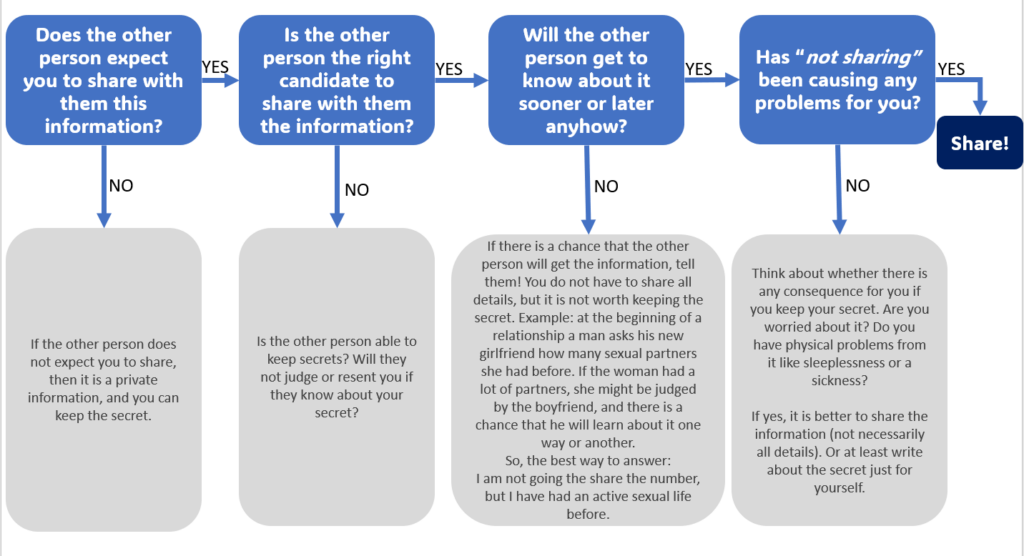The PostSecret site is full of confessions like these:
I get bullied at school. But I do not dare to tell my parents.
I keep following my ex. Every day I know what she does, who she talks to. I even watch her new boyfriend.
I stole money from the company petty cash.
I’m gay, but I’m afraid to come out of the closet. Even my best friends have no idea.
These people anonymously share their secret with the world via the site, yet they do not tell anyone in their personal lives.
However, research clearly shows that honesty is healthy. For example, an American study conducted in the 1990s found that people with HIV who were openly gay lived longer than those who kept it a secret. Another group of researchers followed women with breast cancer. They found that those who openly discussed their fears and other emotions had fewer physical problems and worried less.
Andreas Wismeijer, a professor and researcher of secrets at the University of Tilburg in the Netherlands, claims that the top list of topics for concealments is as follows:
- Sex-related topics – whether we masturbate or what positions we prefer, etc.
- Relationship problems – we do not share with others when there are fights, doubts, etc. in our relationship.
- Illnesses – most of the time we keep our psychological problems to ourselves, but we don’t talk much about our hemorrhoids either.
- Financial problems – debts, money troubles often remain secrets.
- Bullying, exclusion – when we are the target of bullying at school or work, we keep it to ourselves.
However, sharing what’s going in our life on with someone we can trust helps to process things psychologically. Just telling someone or writing about what we’ve been going through, can decrease our emotional stress. Scientists suggest it’s better to share your story more than once!
So, should we tell everything? American psychologist Anita Kelly says that that’s not necessary either. In her book “The Psychology of Secrets“, she suggests the following model for deciding whether to share or not:

In the Kintsugi (Forgiveness) section of the ME MAP Young Adults book we talk about why it is important to forgive the other person when they have confessed something.
You can find more about this in the ME MAP Young Adults book: Click to read about the books!
Click to buy the book on Amazon!
Source : Anita Kelly : “The Psychology of Secrets“







